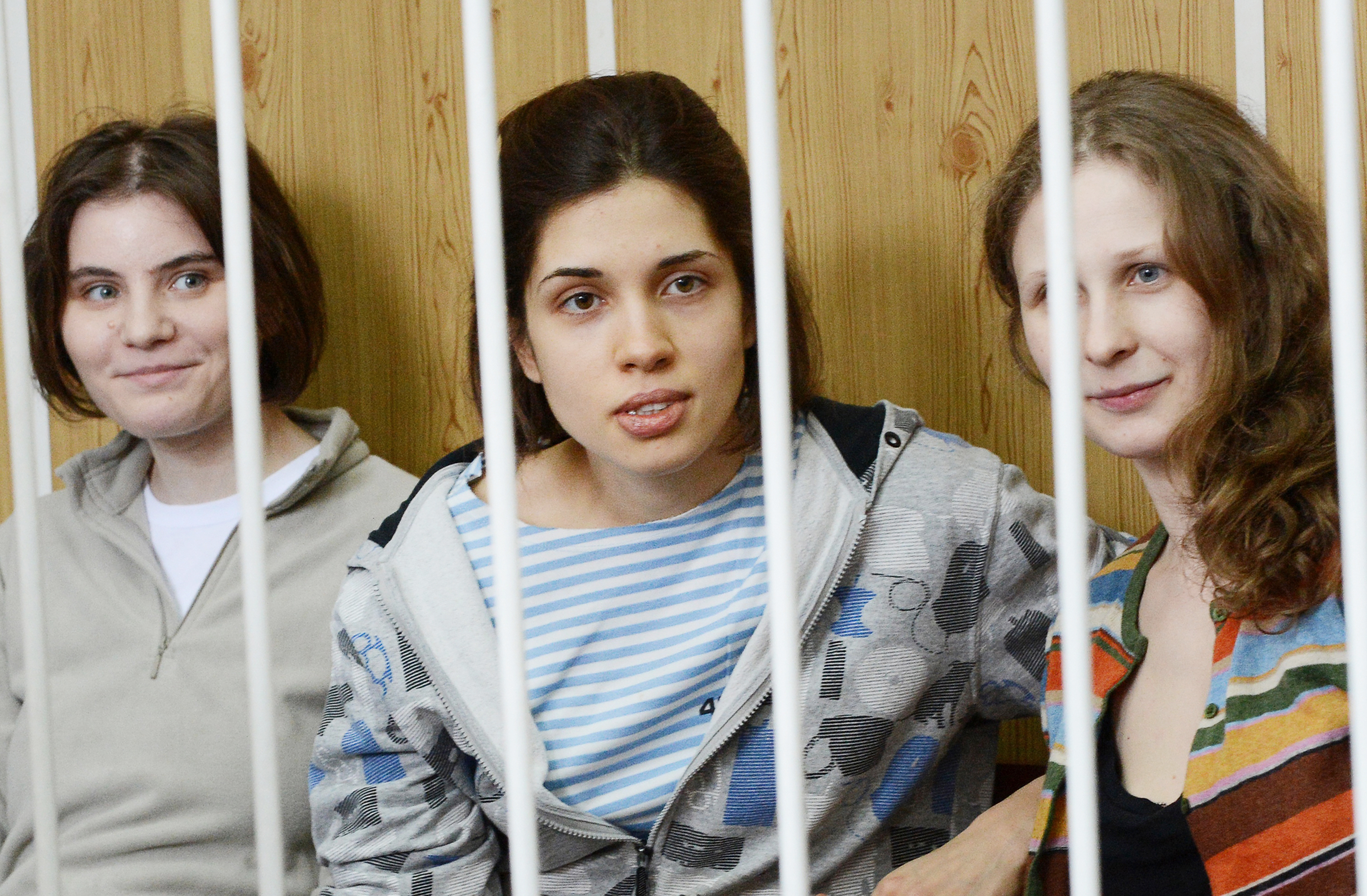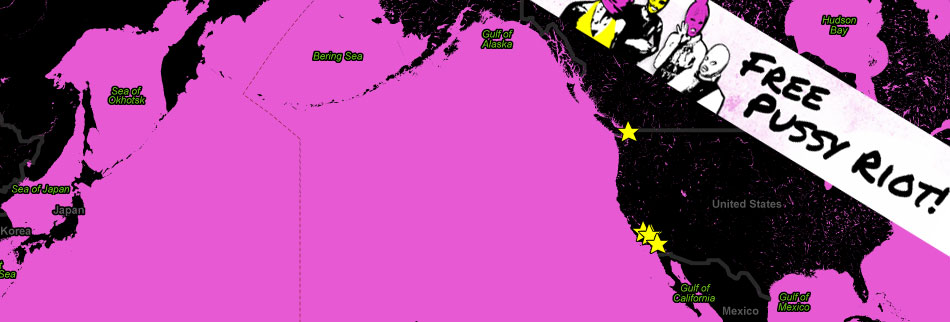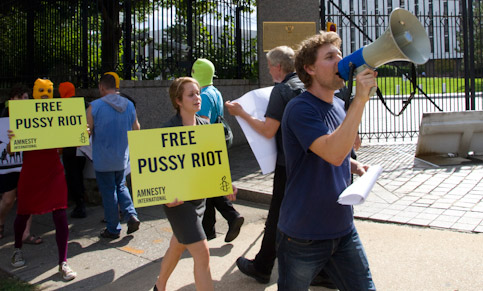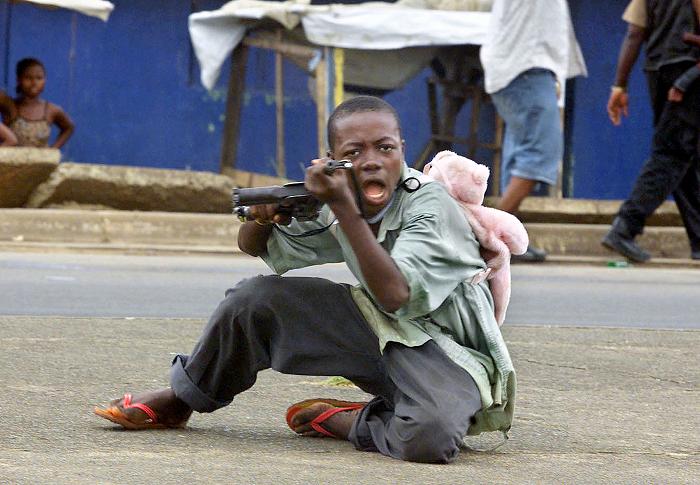
A file picture taken on July 20, 2012 shows members of the all-girl punk band “Pussy Riot” Nadezhda Tolokonnikova (C), Maria Alyokhina (R) and Yekaterina Samutsevich (L), sitting behind bars during a court hearing in Moscow. (Photo credit: NATALIA KOLESNIKOVA/AFP/GettyImages)
Nearly a year after punk rock protest group Pussy Riot’s performance at Christ the Savior Cathedral, a Russian prison court has ruled not to release jailed Pussy Riot member. The punk rocker’s attorneys had petitioned the Russian court to defer her sentence until her young son turned fourteen as she is a single parent.
Unfortunately, Maria will spend the remainder of her two year sentence far away from her five year old.
The ruling is yet another example of injustice compounded in the Pussy Riot case. From the initial unjustified arrests, to the questionable trial, to an outrageous verdict, each step in the case has been an affront to human rights and freedom of expression.





